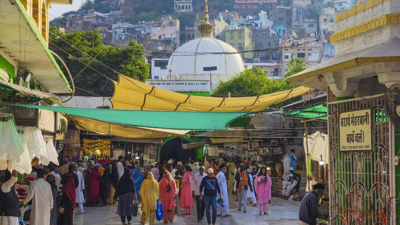
NEW DELHI: The All India Muslim Personal Law Board (AIMPLB) has raised alarm over a surge in claims against mosques and dargahs being entertained in courts across India, urging Chief Justice of India Sanjiv Khanna to take suo motu action.
The board said that such cases undermine the Places of Worship (Special Provisions) Act, 1991, which prohibits altering the status of religious sites as of August 15, 1947.
In a statement, AIMPLB spokesperson SQR Ilyas criticised these claims as a “blatant mockery” of the law and Constitution, calling for stricter judicial scrutiny. He warned that failing to enforce the Act could have grave consequences for communal harmony.
“Following the unresolved issue of Sambhal’s Jama Masjid, a new claim has emerged, asserting that the world-renowned Ajmer dargah is the Sankat Mochan Mahadev Temple. Unfortunately, the West Civil Court in Ajmer has accepted this petition for hearing and issued notices to the parties involved,” Ilyas said.
This case follows similar disputes involving the Gyanvapi mosque in Varanasi, the Shahi Eidgah in Mathura, the Bhojshala mosque in Madhya Pradesh, and the Teele Wali Masjid in Lucknow. Ilyas noted that the ongoing legal proceedings defy the Supreme Court’s guidance in the Babri Masjid case, which underscored the sanctity of the 1991 law.
“The petitioners claim the land of the Ajmer dargah originally housed a Shiva temple where rituals like jal abhishek were performed. Despite the law, courts continue to entertain such claims,” he said.
Ilyas appealed to the judiciary to prevent the lower courts from enabling further disputes. He also called on the central and state governments to enforce the 1991 Act, stressing that any lapses could lead to “an explosive situation across the country.”
The AIMPLB’s response comes days after four people died in Sambhal, Uttar Pradesh, following communal violence triggered by a court-ordered survey of the Shahi Jama Masjid. The petitioners claimed the mosque was built after demolishing a temple.



















